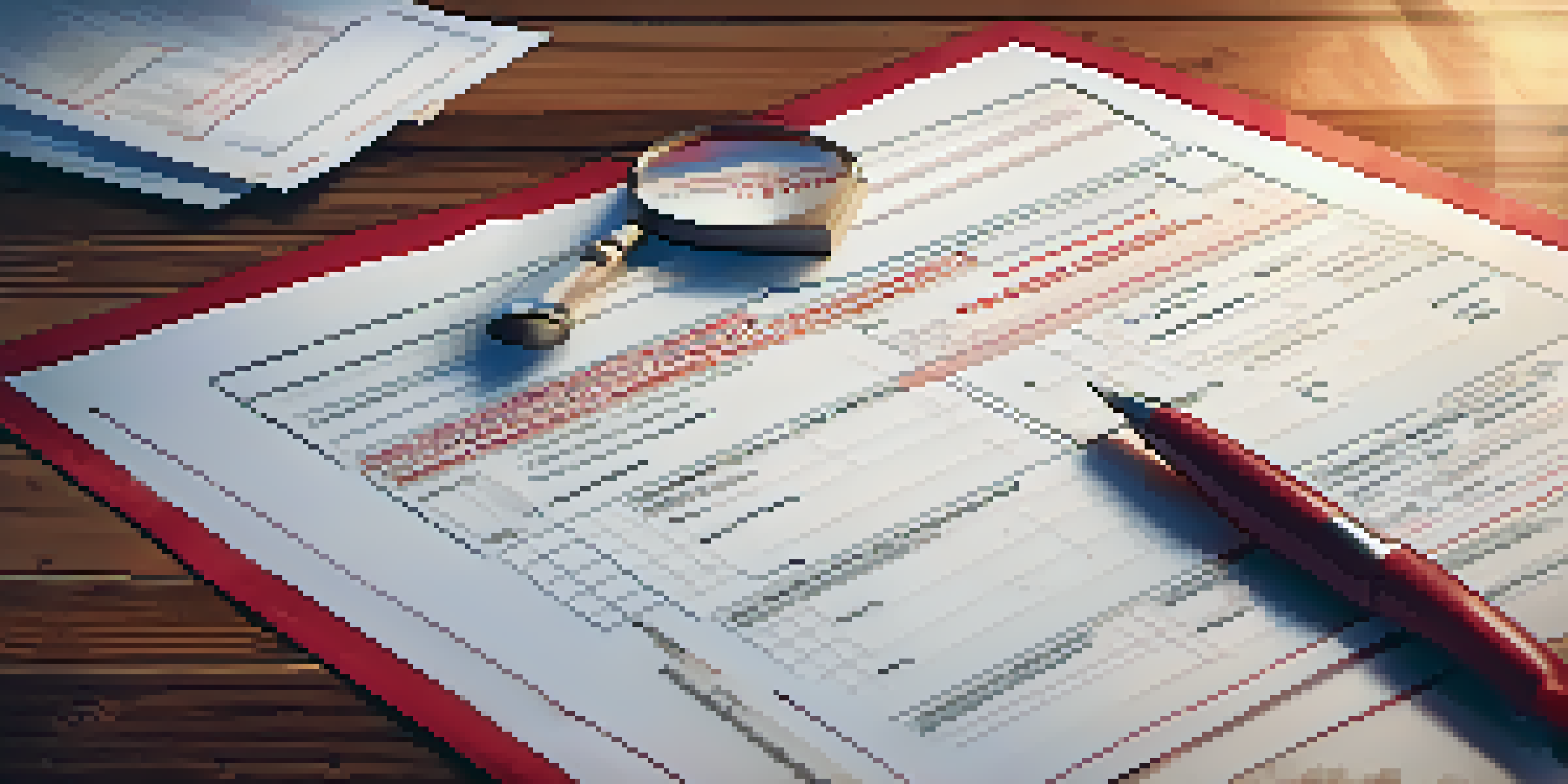The Role of Home Inspections in Selling Your Property

What Is a Home Inspection and Why Is It Important?
A home inspection is a thorough examination of a property’s condition, typically conducted by a certified professional. This process is essential for both buyers and sellers, as it uncovers potential issues that could affect the sale. Think of it as a health check-up for your home, revealing any underlying problems that need addressing.
A house is made of walls and beams; a home is built with love and dreams.
For sellers, understanding the condition of their property can lead to informed decisions regarding repairs and pricing. It allows you to present your home in the best light possible, which can attract more interested buyers. After all, who wouldn't want to buy a home that’s been well-maintained?
Additionally, a home inspection can help mitigate surprises during the negotiation process. By being proactive, you can address issues upfront, which builds trust with potential buyers and can lead to a smoother transaction.
How Home Inspections Affect Buyer Perceptions
The impression buyers get from a home inspection can significantly influence their decision to purchase. A well-documented inspection report can reassure buyers about the property's condition, making them feel more confident in their investment. Conversely, a report filled with red flags can deter potential offers.

It’s like going on a date; first impressions matter. If a buyer walks into a home that looks great but then hears about serious issues during the inspection, their enthusiasm may quickly fade. This is why transparency is key; presenting an honest view of your property can foster trust.
Home Inspections Are Essential
A home inspection uncovers potential issues, helping both buyers and sellers make informed decisions.
Moreover, addressing minor repairs before showing your home can enhance buyer perceptions. For example, fixing leaky faucets or squeaky doors can make your home feel more inviting, leading to better offers.
Choosing the Right Home Inspector
Selecting a qualified home inspector is crucial for a thorough evaluation of your property. Look for someone who is certified, experienced, and has good reviews from past clients. Just as you wouldn’t go to an unqualified doctor for a check-up, you want an inspector who knows what to look for.
The bitterness of poor quality remains long after the sweetness of low price is forgotten.
A good inspector will not only assess structural elements but also delve into systems like plumbing, electrical, and HVAC. This comprehensive approach ensures that you’re aware of all aspects of your home’s condition. Don’t hesitate to ask potential inspectors about their process and experience.
Additionally, consider getting recommendations from your real estate agent or friends who have recently sold their homes. Their insights can help you find someone trustworthy and skilled, setting the stage for a successful sale.
Preparing Your Home for an Inspection
Preparation can make a world of difference during a home inspection. Start by cleaning your home and decluttering spaces to give inspectors clear access to all areas. Imagine you’re preparing for guests; a tidy environment not only looks better but also allows for a smoother inspection process.
Next, consider addressing minor repairs ahead of time. Fixing cracked tiles, replacing burnt-out light bulbs, and ensuring all appliances are in working order can show buyers that you’ve taken care of the property. It’s these small details that can impress potential buyers.
Choose a Qualified Inspector
Selecting a certified and experienced home inspector ensures a thorough evaluation of your property's condition.
Finally, if possible, be flexible with scheduling the inspection. Allowing the inspector to work at their own pace can lead to a more thorough evaluation, ensuring that nothing is overlooked.
Understanding the Home Inspection Report
After the inspection, you’ll receive a detailed report outlining the findings. This document can feel overwhelming, but it’s essential to read it carefully. Think of it as your home’s report card, highlighting both strengths and areas needing improvement.
The report typically categorizes issues as minor, moderate, or major, helping you prioritize what to address. Major issues, such as roof damage or electrical problems, may need immediate attention, while minor issues can often wait. Understanding these distinctions can guide your next steps.
If you’re uncertain about any findings, don’t hesitate to consult with your inspector. They can provide clarity and explain the implications of each issue, ensuring you’re fully informed as you move forward.
Negotiating Repairs After the Inspection
Once the inspection report is in hand, negotiations may begin. Buyers often request repairs or concessions based on the inspector's findings, which can impact the sale price. It’s essential to approach these negotiations with an open mind and a willingness to find common ground.
Consider which repairs are reasonable to address and which ones you feel comfortable leaving for the buyer to handle. For example, if the roof needs repairs, it might be worth investing in those fixes to close the deal. On the other hand, cosmetic updates can often be left to the new homeowner.
Prepare for a Successful Inspection
Cleaning, addressing minor repairs, and being flexible with scheduling can lead to a smoother home inspection process.
Ultimately, effective communication between you and the buyer is key. Being transparent about what you’re willing to repair can foster goodwill, leading to a successful sale.
The Impact of Inspections on Closing the Sale
A thorough home inspection can significantly impact the closing process of your sale. If issues arise that are not addressed, it can lead to delays or even a buyer walking away. This is why a proactive approach to inspections is so beneficial.
When both parties are satisfied with the inspection outcomes, the path to closing becomes much smoother. Buyers are more likely to proceed with confidence, knowing they have a clear picture of the property's condition. It’s like clearing the roadblocks before a big trip; everything flows better.

In conclusion, home inspections play a vital role in the selling process. By understanding their importance, preparing adequately, and being open to negotiations, you can ensure that your sale goes off without a hitch.